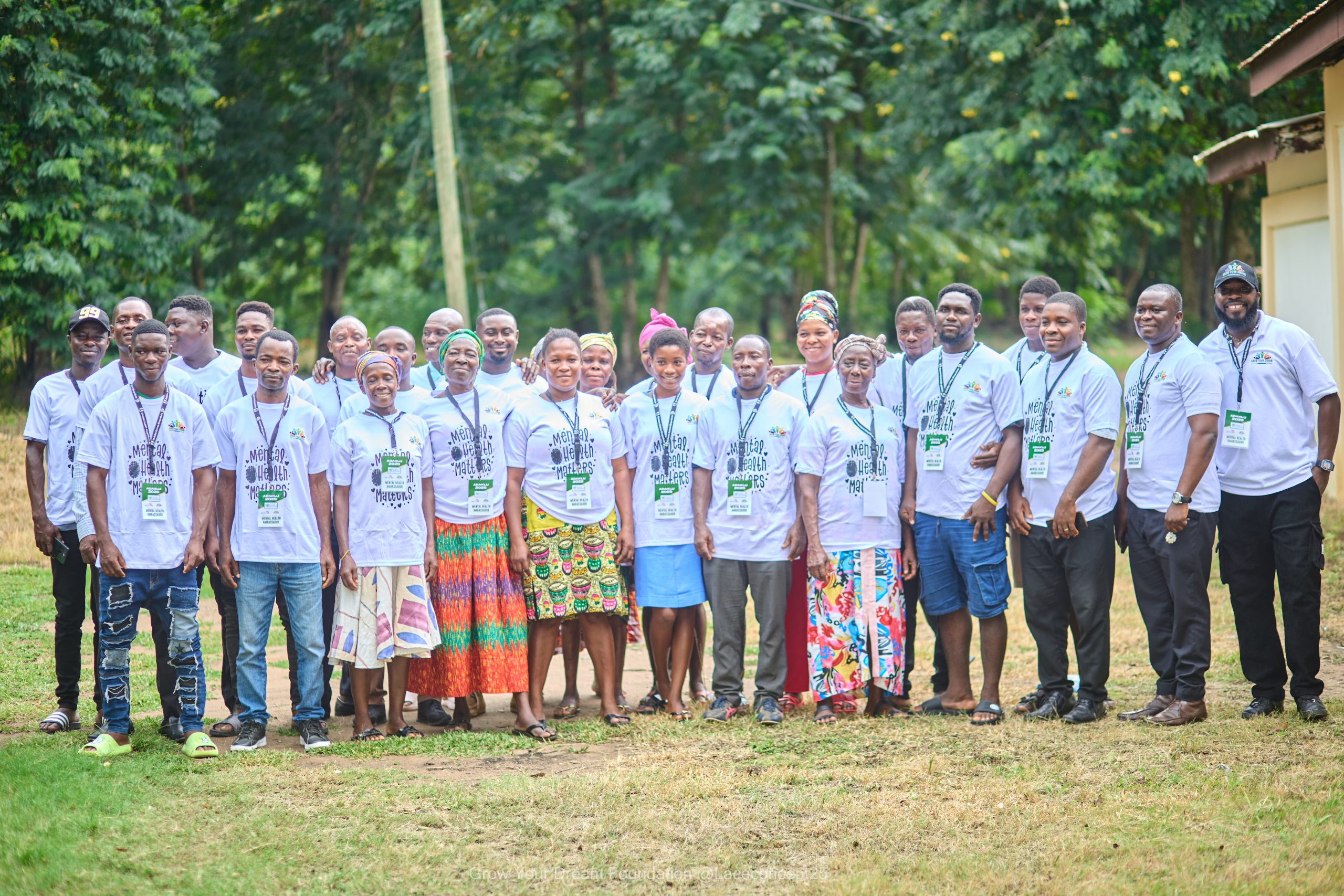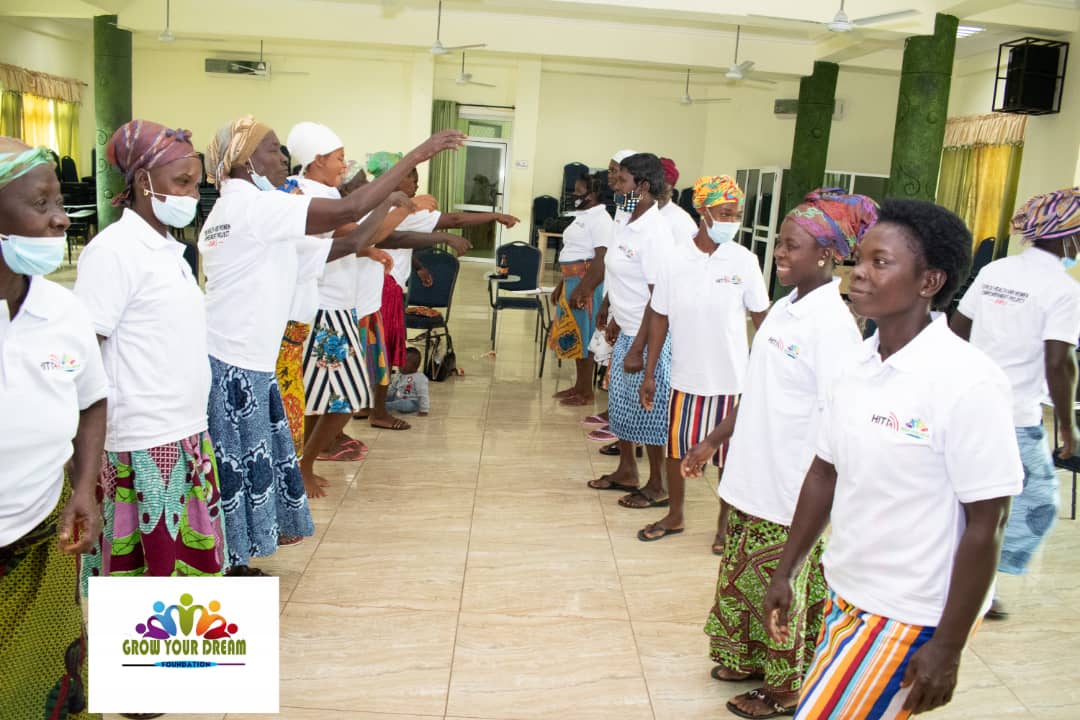
We are an Adaklu-based Non-Governmental Organization (NGO) operating in the domains gender equality, access to education and health promotion. Over a number of years, we have organised countless meetings, group session, discussion rounds and other means as a way to promote health, education and gender equality in the communities of Ghana’s Adaklu District. Our main focus is on participative methods and the use of simple and understandable messages, always tailored to local circumstances, needs and preferences. GYDF’s is creating and chairing local groups of individuals who have an interest in positive societal change. These groups are the Fathers Club, the Mothers Club and the Adolescents Club, many of which are already up-and-running in communities across Adaklu.
In 2019/2020 we joined forces with a German charity, another local NGO and local community leaders to organise distribution of school bags to girls from disadvantaged backgrounds in Adaklu-Waya and some surrounding villages, based on our conviction that the region’s girls and young women need to be empowered to participate fully in society.
In 2020 we were engaged in a range of activities for fighting the spread of COVID-19 and helping the rural population deal with negative side effects of safety protocols introduced, such as price hikes for convenient goods, difficulties in accessing social and health services, and stigmatisation of persons who are believed may carry the virus.
Between February and December 2021, we ran an 11-month project funded by a German foundation, the Schmitz Stiftungen, and German NGO Health Information Technologies for Africa (HITA). The project sought to make our community engagement work much more effective and efficient through a “train-the-trainer” programme and by harnessing the potential of digital tools. In the course of the project, 250 fathers and 420 mothers from 10 communities across Adaklu have taken part in newly founded Fathers and Mothers Clubs, and more than 100 community elders and other opinion leaders at local level have been involved in discussions for how gender equality can lead to improvements in social development. Moreover, 40 club leaders have received training to become drivers of positive change in their communities; they have also been equipped with smartphones as a means to interconnect with each others, share experiences and to co-develop digital content (e.g. video clips of community events or exercises) for use in future joint activities. A video briefly introducing the project is available here.
In a 2023 project funded by German NGO Health Information Technologies for Africa (HITA), we built on the achievements of the 2021 project, validated the methodologies used for engaging mothers, fathers and youth in five communities (Amuzudeve, Dawunu, Dzakpo, Kordiabe and Kpodoave), and further embedded the groups in everyday communal life through close interaction with community elders and representatives from all parts of society.
In summer 2025, we started our second project funded by Germany’s Schmitz Stiftungen and German NGO Health Information Technologies for Africa (HITA). The one-year project (July 2025–June 2026) in the Adaklu District seeks to improve mental health and well-being in rural communities. Building on our strong local networks, we will expand our staff’s capacity through WHO QualityRights training, then run a pilot that combines monthly awareness and engagement in 10 communities with train-the-trainer workshops for selected teachers at three secondary schools in Adaklu and nearby Ho. Each community and school will appoint a Mental Health Ambassador, and we’ll support them with practical materials—handouts, posters, and short Ewe-language infographics and videos—shared in person and via WhatsApp. Working closely with the Ghana Health Service, the Ghana Education Service, and partners such as MindFreedom Ghana, we aim to reduce stigma, raise literacy about causes, symptoms, and treatment options, and establish clear school processes for identifying and supporting at-risk students. We will measure change using adapted tools (e.g., CAMI and MHLS), document lessons, and publish open resources so the approach can be scaled across Adaklu and similar districts.
![]()

Please get in touch if you want to know more about our work!


